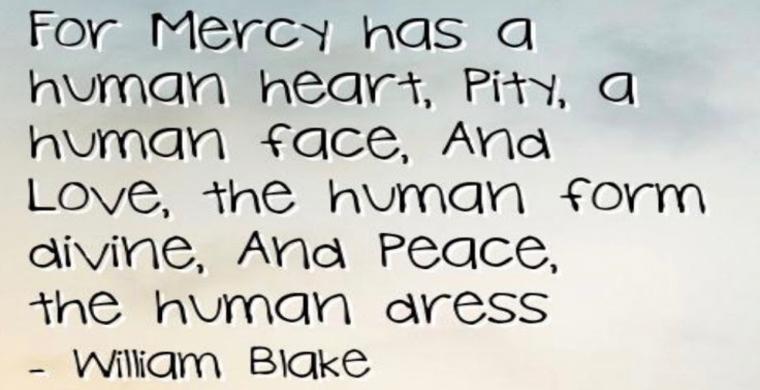Mercy has a human face (even in Manchester)
By GALVIN ASHENDEN
https://ashenden.org/2017/05/23/mercy-has-a-human-face-even-in-manchester/?iframe=true&theme_preview=true
MAY 23, 2017
As the stories of human desolation and suffering emerge from the simple statistics of the numbers killed and maimed in the Manchester bombing, a pattern emerges.
Numbers on the one hand -- and the heart rending details of the stories that are broken human lives on the other; washed in tears that won't stop, shed by families like our own; teenage girls like our own daughters, who will never walk again, or for some, never even breathe again.
Within minutes of the assassination of our children, there was an outpouring of goodness. It began with Manchester Muslim taxi drivers turning their taxi meters off and offering to drive anyone in need anywhere. Theatre nurses on a conference near Manchester offered to come in to work with surgeons in the middle of the night. Hotels threw open their doors to give tea and shelter to anyone looking for their kids.
We know what goodness looks like. It weeps with those who weep. It aches with those who mourn. It digs its hands into its pockets to give anything it can find there to help ease the suffering -- just a little.
Pity, mercy, kindness, join human hearts to human stories. Love looks at a stranger's face and their humanity is unlocked by suffering.
William Blake wrote a poem about this and one of the verses runs:
"For Mercy has a human heart,
Pity a human face,
And Love, the human form divine,
And Peace, the human dress."
By which I think he means that mercy sees through statistics and numbers by connecting heart to heart, wound to wound.
Discovering someone's suffering promotes them from an 'it' to a 'you.'
Martin Buber, a Jewish philosopher tried to explain this by talking about the "I-Thou" ness of human relationships. The key in the door that separates humans from each other is turned by the 'I-Thou' connection.
And evil of course, is the opposite. In order to do evil to another human being we have to wipe the humanity from off their face. We have to see them as an 'it'. "I-thou' becomes "I-it" and once we have got there, we are free to do the most dreadful things to one another.
How was it that Nazi guards in Auschwitz could gather together the tiny shoes from the children whom they ushered naked into the gas chambers and collect them for recycling for the war effort? Unless they stripped them of their identities as children and saw them as things instead -- crowds of 'its', that were both dangerous and disposable.
Islamic suicide bombers are not unique. Islam may be the most violent religion on earth, but Muslims are as human as any else, and in some cases of course better people than others. But the suicide bomber has to persuade himself (and the friends who planned it with him --or her) that the teenage children in the Manchester concert were not precious beloved sons and daughters learning to sing and dance, but dangerous and disposable 'its'.
Evil works on a sliding scale I think. It starts off small before it can grow and gain the kind of control that maims and murders.
We give it its first foothold in our own lives, when we wipe the human suffering of the face of our political enemies; the 'its' of our own opposition.
Sometimes the 'its' are foreigners of one description or another. Sometimes in a failing marriage, the warring, unreasonable impossible spouse.
Evil uses our imagination to seduce us into this other narrative or pattern, by numbing the imagination, so we see only facts instead of faces, and problems instead of people.
Blake saw the solution clearly. In the last verse of his poem he wrote:
"And all must love the human form,
In heathen, Turk, or Jew;
Where Mercy, Love, and Pity dwell
There God is dwelling too."
If you have a problem with the idea of God, replace it with the words 'Loving Compassion' and then we find we are all talking the same language again. We can disagree about whether the compassion that makes us human has an exterior cosmic origin that has found an echo in our psyches, or whether we just made it up ourselves.
What matters most is whether we put it into practice. In the Gospels we find Christ was pretty severe about this. He warned people who thought they ticked enough moral boxes that if their actions weren't at least as good as their language and labels, they were in more trouble than they knew.
After Manchester, those whose lives have been wrecked will be hoping that their wounds, along with the wound of all the bereaved and maimed, will heal if only a little, in time.
For the rest of us, there is the challenge not to respond to degrading humans to an 'it' with another 'it.' Somewhere deep down in the tortured self-righteousness of the Jihadist bomber, there is person, crushed long ago by hate and self-righteousness. Within each bomber, is, or was, a hurting human being. Like us.
END














